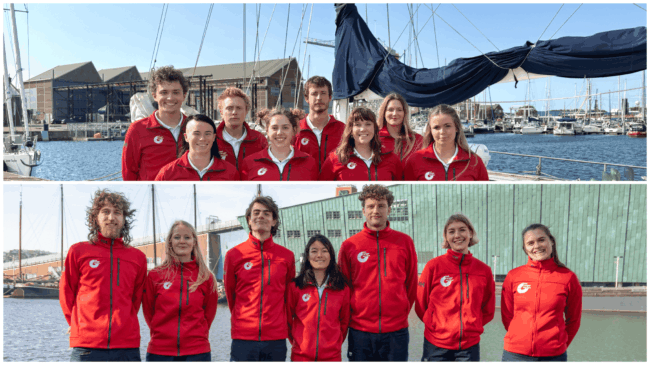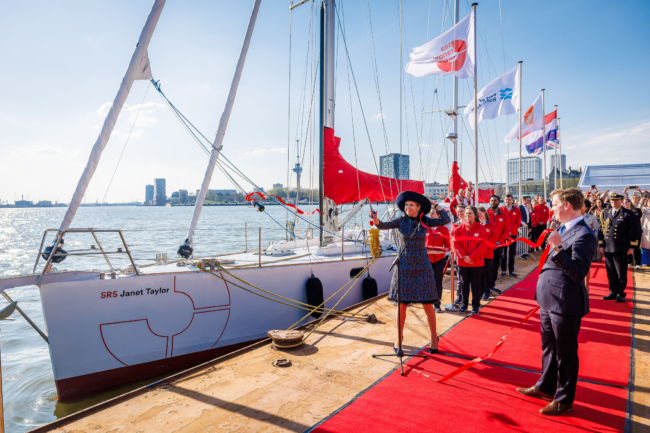A Sea Ranger actually fulfills two roles simultaneously: being part of a ship’s crew and at the same time working on operational projects and assignments from third parties, with the overall goal to protect and improve the sea ecology. Sea Rangers learn to sail, navigate, and everything there is to know about working safely aboard. Crewing aboard a ship is a full-time job in itself. Life aboard goes on continuously and one has to be ready to react to any type of situation, all the time. If the wind suddenly increases and the sails need reefing (reducing their surface area) there is no time to finish your cup of tea, or the assignment you were working on. We are always at the ready. Safety comes first.
Our mission to protect and regenerate nature at sea is achieved by working on all kinds of assignments for the government, research institutes and other types of clients. In december 2018 an agreement was signed between Carola Schouten, the Dutch minister of agriculture, nature and food quality, and Wietse van der Werf, the founder of the Sea Ranger Service (my boss). The agreement, known as the Green Deal Sea Ranger Service, gives us an opportunity to investigate what kind of tasks we can perform at sea to aid in the transition to a more sustainable food and energy cultivation at sea. Over the last year, this pilot period has culminated in carrying out the following tasks.
Gathering weather data for the Royal Dutch Meteorological Institute (KNMI)
Twice daily measurements are taken from the ship. We input weather data into a special computer program and send this off to the KNMI. Because we operate at sea and go places other vessels might not service regularly, the information we provide is valuable to creating weather models.
Plastisphere research for the Royal Dutch Institute for Sea Research (NIOZ)
Every day we collect one or two samples of microplastics with a self developed mini trawl net. NIOZ analyses the samples for types of microorganisms that may have attached themselves to the plastic and how they may be altered by it.
Inspections of protected wreck sites
Sea Rangers periodically monitor protected shipwreck sites for the Dutch heritage inspectorate. We monitor for suspicious activity around these archeologically valuable areas and report any findings directly to the inspectorate.
Cooperation with Technical University (TU) Delft
We are collaborating on the development of a new underwater robot, known as the LOBSTER. This relatively small and fully autonomous robot can descend towards the seabed quickly, take pictures and measurements before returning to the surface automatically. The development is a potential world-first in the field of seabed surveying.
Working for seaweed cultivation
In november 2019 we signed for a collaboration with the North Sea Farm Foundation, to explore the utility of sailing work ships like ours for the maintenance of offshore seaweed farms. In February of this year we successfully completed the first seaweed pilot.
Apart from all such assignments, there are several new collaborations currently being formulated. Unfortunately, I can’t discuss these in my blog yet, but keep checking in and I am sure you will see new info appear soon. Our main focus remains on protecting and restoring Marine Protected Areas. By cooperating with several parties we are constantly exploring new ways to put this focus into practice. This is why our current pilots and assignments are so important!
In the next blog I will tell you more about my first introduction to the Sea Ranger Service, why I signed up and the strict selection process I had to undergo for the Sea Ranger Bootcamp.





